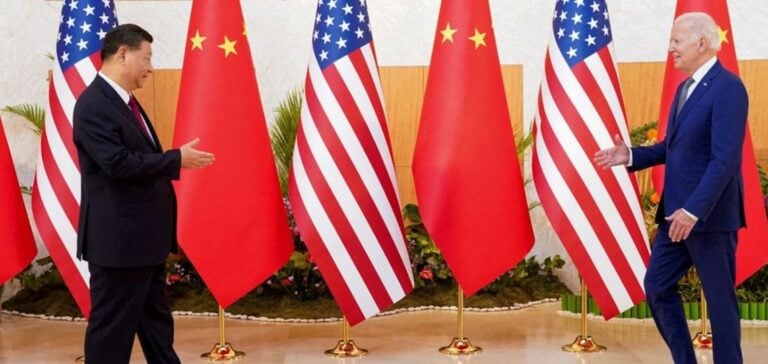Recent U.S. tariff decisions on Chinese imports mark a significant turning point in trade relations between the two countries. The measures, which include tariff increases of up to 100% on electric vehicles, 50% on semiconductors, and 25% on batteries and steel, are designed to protect US industry while raising concerns about their economic impact.
The tariffs, which take effect on September 27, 2024, are part of a broader review of US trade policies, including Section 301 of the Trade Act of 1974.
The impact of these new tariff measures is already palpable.
Chinese electric vehicles, for example, could see their price double on the US market, making them less competitive with local alternatives.
Similarly, higher tariffs on semiconductors could affect American electronics manufacturers, who rely heavily on these components for the production of various devices.
The automotive and renewable energy industries, meanwhile, could face increased costs due to tariff hikes on batteries and steel.
Economic repercussions and Chinese reactions
A study by the Peterson Institute for International Economics (PIIE) points out that tariffs imposed by previous administrations have already cost the US economy around $165 billion.
The new increases could exacerbate this situation, raising costs for consumers and businesses, particularly in the green technology and automotive sectors.
The Chinese Ministry of Commerce reacted by calling the measures “protectionism and unilateralism”, claiming that they would harm not only US businesses, but also the international trade order.
China also pointed out that exports of targeted products to the US amounted to tens of billions of dollars each year.
This highlights the importance of trade between the two countries and the potential consequences of the new restrictions.
The Ministry has indicated that it may take “necessary measures” to defend the interests of its companies and maintain the stability of the supply chain.
International reactions and global consequences
Reaction to these new measures is not limited to the USA and China.
Other countries, such as Canada, are considering introducing similar surtaxes on Chinese products, particularly in the battery and semiconductor sectors.
In Europe, officials have expressed concern about the impact these tariffs could have on global trade.
Political leaders such as German Chancellor Olaf Scholz and Swedish Prime Minister Ulf Kristersson have pointed out that many electric vehicles imported from China come from European manufacturers operating in China, further complicating the economic and diplomatic situation.
The implications of these tariff measures go beyond bilateral relations.
According to the Cato Institute, these decisions are perceived to be driven by domestic political considerations, especially in the run-up to the 2024 US elections. However, these measures risk heightening trade tensions and reducing prospects for cooperation on crucial issues, such as the energy transition, where international collaboration is essential.
Future prospects and reflections
New tariff restrictions on Chinese products could have significant consequences not only for the USA and China, but also for international trade and global energy transition efforts.
Experts are concerned about the long-term effects on supply chains and consumer prices, which could rise as a result of these new taxes.
The current situation underlines the importance of constructive dialogue between nations to resolve trade frictions and avoid escalating tensions.
In this context, the Chinese Ministry of Commerce has expressed its wish to intensify dialogue with the USA and other trading partners to resolve these frictions through diplomatic means.
China is also preparing to actively defend its economic and commercial interests if necessary, which could lead to a new dynamic in international trade relations.
The next steps will be crucial in determining the impact of these measures on the global economy and on international cooperation efforts.





















